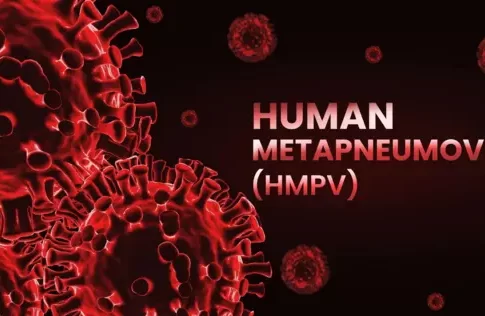Amid a surge in human metapneumovirus (HMPV) cases in northern China, and other countries around the world, health experts assure the public that a Covid-level pandemic is unlikely. However, understanding and caution remain crucial to managing its spread.**
Human metapneumovirus (HMPV) is a respiratory infection that shares symptoms with the common cold or flu. Since its identification in the Netherlands in 2001, HMPV has garnered attention for its potential to cause more severe conditions such as bronchitis and pneumonia, particularly in vulnerable groups including the elderly, young children, and people with weakened immune systems.
Recent reports have highlighted a surge in HMPV cases in northern China, especially among children. China’s Center for Disease Control and Prevention (CDC) has urged citizens to maintain health and hygiene while dismissing rumors of overwhelmed healthcare facilities. “Respiratory infections tend to peak during the winter season,” said Mao Ning, spokesperson for the Chinese Foreign Ministry. “The diseases appear to be less severe and spread on a smaller scale compared to previous years.”
The increased detection of HMPV cases is partly attributed to advancements in diagnostic technology and heightened public vigilance post-Covid. Dr. Jacqueline Stephens, a senior lecturer in public health at Flinders University, Australia, noted, “I think we’re just more cautious of outbreaks now. Everyone is hypervigilant, and you hear the term human metapneumovirus, and it sounds kind of scary.”
Professor Paul Griffin, director of infectious diseases at Mater Health Services in Brisbane, emphasized the importance of awareness, stating, “It certainly can and does cause severe disease. That’s why I think it’s important that people know it’s out there.”
HMPV poses a higher risk to the elderly, very young children, and immunocompromised individuals, potentially escalating to serious respiratory conditions. Despite the current absence of a vaccine or antiviral treatment, research is underway to develop preventive measures.
Unlike Covid-19, HMPV has been present for several decades, providing some level of immunity within the population. “I don’t think we’re necessarily concerned about a pandemic with this virus, but the surge in cases and impact it’s having are significant,” Griffin remarked. The lessons learned from the Covid-19 pandemic can guide efforts to mitigate the spread of HMPV, particularly in the absence of vaccines.
Both Griffin and Stephens advise continuing good hygiene practices, such as staying home when unwell, practicing proper cough and sneeze etiquette, and maintaining hand hygiene. “I’m certainly not suggesting we go back to the harsh restrictions of Covid, but staying home, practising good cough and sneeze etiquette, and hand hygiene are so important during the winter season,” Griffin advises.
Additionally, they recommend wearing masks in crowded places if symptomatic to protect others, especially those at greater risk.
While there is no immediate cause for panic, the recent surge in cases highlights the importance of vigilance. According to the World Health Organization (WHO), respiratory infections like HMPV contribute to significant annual morbidity and mortality worldwide, emphasizing the need for continued surveillance and research.
As the situation develops, health authorities will continue to monitor HMPV trends and provide updates to ensure public safety and preparedness.


